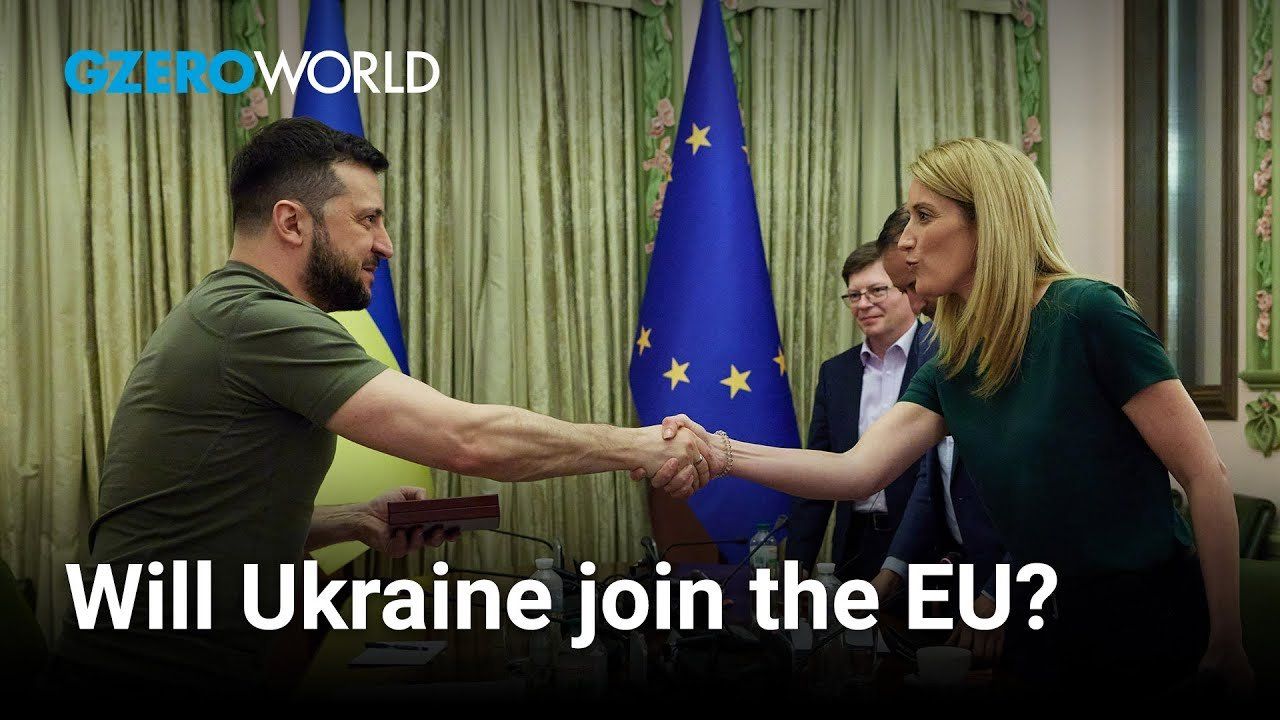
As Russia’s invasion rages on with no end in sight, Ukraine’s future hangs in the balance. Continued US support is far from guaranteed, and future policy toward Ukraine won't be clear until after the dust settles from the US election. Amid this uncertainty, the European Union has emerged as Ukraine’s strongest ally. The war is being fought only miles from EU borders and European leaders are working overtime to make sure the bloc is able to stand on its own, militarily and economically.
On GZERO World, Ian Bremmer sat down with European Parliament President Roberta Metsola, one of Ukraine’s staunchest defenders, to ask about its path to EU membership and the future of Europe’s strategic autonomy. Despite Ukraine’s financial challenges, Metsola unequivocally believes European enlargement is a “win-win,” pointing to Poland’s successful trajectory after it joined the EU in 2004. There is still a lot of work to do to strengthen Europe’s voice on the global stage, Metsola admits, and the EU has a responsibility to show the world it can lead by example.
“We make it so difficult for countries to join the European Union, but then let the countries that are inside of Europe do whatever they like,” Metsola says, “We don't have rules to make sure that our basic tenets, fundamentals of democracy work.”
Watch the full episode of GZERO World with Ian Bremmer: Can Europe become a global superpower?
GZERO World with Ian Bremmer, the award-winning weekly global affairs series, airs nationwide on US public television stations (check local listings).
New digital episodes of GZERO World are released every Monday on YouTube. Don't miss an episode: subscribe to GZERO's YouTube channel and turn on notifications (🔔).